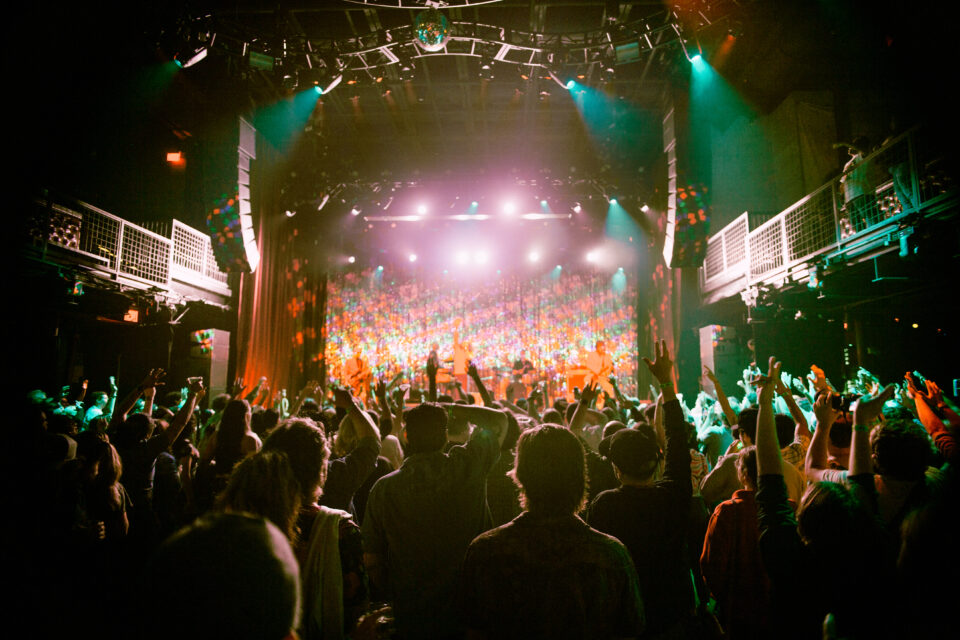Our understanding of Nashville’s musical identity is shaped by everything from how it’s promoted to the world as the country music capital to how city natives critique that rep in their songs. But since the music ecosystem has been shaken up in recent years — by skyrocketing development; the pandemic; the 2020 tornadoes; and evolving income sources — concrete data was called for.
This year, not one, but two comprehensive surveys, the Nashville Independent Venue Study and the new Greater Nashville Music Census, have spelled out how things really are for the city’s music professionals.
I talked through the findings of this latest census with my colleague, Justin Barney.
Jewly Hight: Justin, you have observed multiple cities with music communities. I’m interested in your fresh perspective on Nashville. As someone who’s only been here a couple of years, what stood out to you from the Greater Nashville Music Census?
Justin Barney: Well, a thing that I think we all know that the numbers show is that Music City is, in fact, Music City. We put on 26,000 shows a year. I could compare data with other cities of similar sizes and say, like, Columbus isn’t all that different from us, and they put on 6,000 shows a year. Five times as many shows happened in Nashville!
And those people who are putting on shows are making more money than any other city that we looked at. Like, a city like Greensboro, North Carolina, those musicians are making not a wage you can live on. More people work in the music industry in [Nashville] than any other city that was surveyed. So this really is a place where the music industry is strong in compared to anywhere else. It was interesting that 55%, a majority of people who work in music industry who filled out this survey, were women, which was unlike any other city.
Jewly, you have been here a little bit longer than me. What what did you see in this survey in terms of change?
JH: I’ve observed the branding side of Nashville as Music City. There’s a breadth implied in that, but it has not always been taken to the extent of actually studying the true variety, what’s actually present here in music communities in Nashville. And in this census, they really did look at, among the 4,000-plus respondents, the racial breakdown. And when it came to white respondents, they represented more than the percentage of the population of the Nashville area that is white. But the respondents who were Hispanic and Black and said that they work in the music industry represented lower percentages of the population than are actually present here in the Nashville area. To see that identified as a reality that should be addressed, that is a relatively new thing.
There was also analysis of the genre breakdown. When you add up the respondents who say they work in country and roots and rock music, that was 56%. A lot of other genres like hip-hop and R&B, those were a tiny, tiny, tiny fraction. So seeing that actually spelled out, that is a new thing.
And related to that, because this is also a demographic issue that has a lot to do with things like gentrification, is the concern over rising costs of living in Nashville. A lot of the respondents were saying that they cannot afford to live in Davidson County. That is also a reality that was not as in our faces 20 years ago.
Justin, when you looked at the census, what stood out to you in terms of solutions that people were clamoring for immediately?
JB: A solution to parking. Parking is an issue. We know it. You know it. I know it. We’ve got the tickets to prove it. We were shown in these numbers that it’s the biggest issue for musicians interacting with something that the government could fix. It’s costing musicians a lot to play because of parking, and that was something that we saw across the board in other cities. That was significant, because the people who [conducted] this survey, they said that data is the language of policy and what they want to do with this data is shape policy at a national level, at a local level, at a state level, in a way that’s kinder to musicians.
JH: Yeah. This resonates with the Independent Music Venue Study that came out a little bit earlier this year, another resource alongside this one. There was great awareness in that study, as well as this one, that the city has prioritized visitors, tourists, doing things to make it a great place for them, maybe more so than for the people who actually live and work and make music here. I’m sensing a great deal of impatience or for change to that reality.
JB: And hopefully in doing surveys like this, we get the data that changes the policy.

